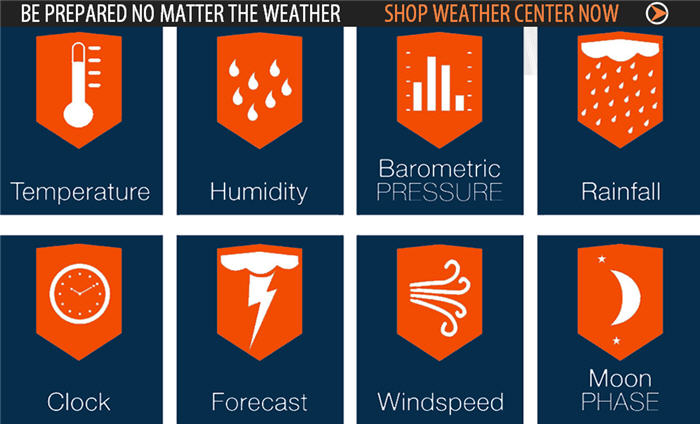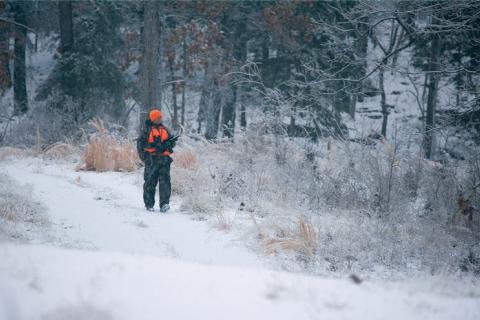
Thick leaden clouds blanketed the sky and the air had a heavy, raw feel as we pushed off into the emerald green river. But at least temperatures hovered above freezing. We were embarking on a 10-mile float trip to hunt ducks and the last thing we needed was ice or snow to contend with.
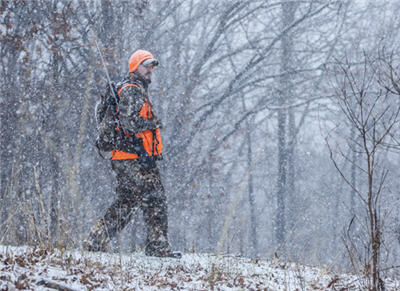 |
| It can be productive to hunt before a winter storm. Game animals will feed heavily 12-24 hours before a storm approaches because they know food will be hard to find once snow blankets the ground. |
![]() Be prepared no matter the weather see Bass Pro Shops for weather prediction products
Be prepared no matter the weather see Bass Pro Shops for weather prediction products
![]() Learn about the Bass Pro Shops AcuRite 5-in-1 Weather Center - WATCH VIDEO
Learn about the Bass Pro Shops AcuRite 5-in-1 Weather Center - WATCH VIDEO
No sooner had we left the launching spot and paddled our first strokes than raindrops began splattering on the river. There was no turning back. The current was too strong, and we’d been dropped off, so the only vehicle available was ten miles downstream.
Reaching into our packs, we gingerly pulled on rain jackets and pants before loading our shotguns and continuing to stroke downstream.
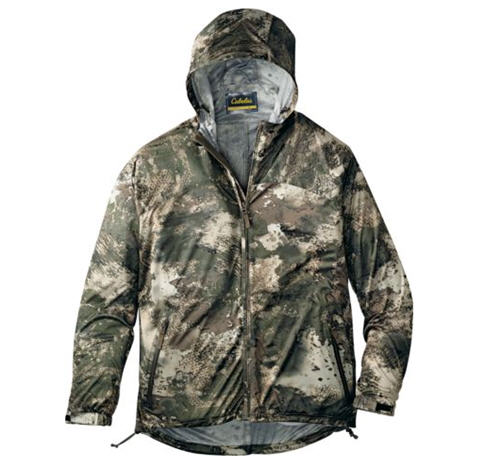
Sometimes you can’t change plans for a hunting adventure because of the weather. Once we left the put-in boat ramp, that outing had to go on in spite of the weather.
On more flexible hunting trips, you can often change plans if you know the weather is likely to be bad. Even if you can’t postpone the outing, knowing what the weather will do can at least help you plan for it and pack appropriately. And often clues in the weather will help you predict how active game will be and how it might affect their movement patterns.
How You Can Predict the Weather - These Signs in Nature Will Help You
One of the best ways to enhance your ability to predict the weather is by learning to read signs in nature including clouds, wind speed and direction, sunsets, animal and insect behavior and even how the air feels.
1. Barometric pressure is often a good indicator of change. If the air has a heavy, burdensome feel to it and you’re lethargic, the barometer is likely falling or already low. A storm front may be approaching.
2. On the other hand, if you feel energetic, the air is crisp and seems light, chances are a high pressure system is influencing the weather. The barometer is likely high and/or rising. Optimum conditions are on tap—both for you and for the quarry you’re hunting.
3. A study of record books conducted by the Boone and Crockett Club showed that over 90 percent of record book whitetails were taken when there was no rain or snow falling, typically with a high or rising barometer. They also found that 85 percent of record book bucks were harvested when winds were 5 mph or less.
4. Insects also respond to air pressure. Ants are most busy and move faster when the barometer is high. They are lazy and sluggish when it’s low.
5. Game animals can tell when a winter storm is approaching well before it arrives. They will eat heavily 12-24 hours before it begins because they know food will be hard to find once snow blankets the ground.
6. Knowing this, you can plan to be in the woods half a day before the storm hits, when peak movement occurs. If you wait too late and go out just before the front arrives, game will likely be bedded down already.
7. Also plan on getting back into the woods the minute the storm breaks. The animals will be hungry and anxious to get out and feed.
8. Birds like swallows and martins tend to fly lower to the ground when a storm is approaching. Spiders often abandon their webs and move onto tent or camp walls when bad weather is coming.
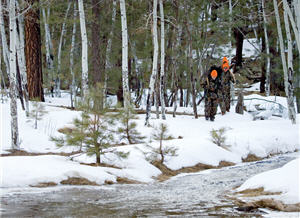 9. Some plants such as clover close up when rain is near. Keep an eye peeled for these signs to predict the coming weather.
9. Some plants such as clover close up when rain is near. Keep an eye peeled for these signs to predict the coming weather.
10. Simple things like smoke going down from a chimney instead of rising are indicative of a low pressure system and possible rain. A halo around the moon is actually light shining through cirrostratus clouds, often signaling the approach of a warm front and possible precipitation.
11. Signs don’t just warn of bad weather, though. They can also tell us when fair weather is on tap. If the night was clear and there’s frost, heavy dew or fog in the morning, the day will likely be clear.
12. If you hear locusts singing, it means dry weather lies ahead. Both are good signs that indicate you should get out into the woods with your hunting gun or hunting bow in hand.
13. The saying “red sky at night, sailor’s delight,” also has some truth to it. A red or pink sunset implies fair weather because skies are clear and most weather systems approach from the west. The color is caused by dust in the dry, clear air.
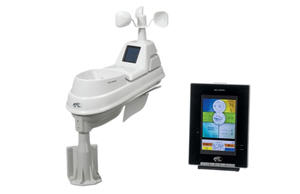 |
| Bass Pro Shops AcuRite 5-in-1 Weather Center |
14. Wind speed, direction and consistency can help you predict the weather. If the wind velocity suddenly picks up, with swirling, gusty breezes, a front is approaching. A steady wind—moderate or light—is typically a sign of stable weather.
15. Wind direction is also important for predicting the weather. East and northeast winds are the counterclockwise currents of a low pressure center and often indicate stormy weather ahead.
16. South winds often mean warm, humid conditions. They can bring rain, too, though often of a gentler variety than east winds.
17. West and northwest winds are often harbingers of good weather—cool and crisp with a high barometer. Those are generally the best winds of all for the deer hunter, except in late season, when south winds bring welcome warmth.
Check out Bass Pro Shops Weather Center for weather stations, emergancy weather instruments and thermometers and rain guages.
VIDEO - Learn more about the Bass Pro Shops AcuRite 5-in-1 Weather Center
- 28156 views


